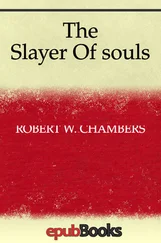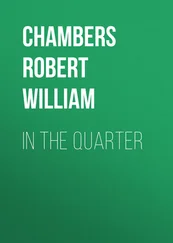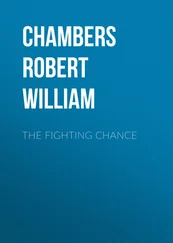Robert Chambers - The Business of Life
Здесь есть возможность читать онлайн «Robert Chambers - The Business of Life» — ознакомительный отрывок электронной книги совершенно бесплатно, а после прочтения отрывка купить полную версию. В некоторых случаях можно слушать аудио, скачать через торрент в формате fb2 и присутствует краткое содержание. ISBN: , Жанр: foreign_prose, Зарубежные любовные романы, на английском языке. Описание произведения, (предисловие) а так же отзывы посетителей доступны на портале библиотеки ЛибКат.
- Название:The Business of Life
- Автор:
- Жанр:
- Год:неизвестен
- ISBN:http://www.gutenberg.org/ebooks/43703
- Рейтинг книги:4 / 5. Голосов: 1
-
Избранное:Добавить в избранное
- Отзывы:
-
Ваша оценка:
- 80
- 1
- 2
- 3
- 4
- 5
The Business of Life: краткое содержание, описание и аннотация
Предлагаем к чтению аннотацию, описание, краткое содержание или предисловие (зависит от того, что написал сам автор книги «The Business of Life»). Если вы не нашли необходимую информацию о книге — напишите в комментариях, мы постараемся отыскать её.
The Business of Life — читать онлайн ознакомительный отрывок
Ниже представлен текст книги, разбитый по страницам. Система сохранения места последней прочитанной страницы, позволяет с удобством читать онлайн бесплатно книгу «The Business of Life», без необходимости каждый раз заново искать на чём Вы остановились. Поставьте закладку, и сможете в любой момент перейти на страницу, на которой закончили чтение.
Интервал:
Закладка:
" I don't forgive them," said Jacqueline fiercely; " – or women, either."
"Oh, nobody forgives women! But you will find excuses for some man some day – if you like him. I guess even the best of them require it. But the general run of them have got to have excuses made for them, or no woman would stand for her own honeymoon, and marriages would last about a week. Good-bye, dear."
They kissed.
At the head of the stairs outside, Jacqueline kissed her again.
"How is the play going?" she inquired.
"Oh, it's going."
"Is there any chance for you to get a better part?"
"No chance I care to take. Max Schindler is like all the rest of them."
Jacqueline's features betrayed her wonder and disgust, but she said nothing; and presently Cynthia turned and started down the stairs.
"Good-night, dear," she called back, with a gay little flourish of her muff. "They're all alike – only we always forgive the one we care for!"
CHAPTER V
On Monday, Desboro waited all the morning for her, meeting every train. At noon, she had not arrived. Finally, he called up her office and was informed that Miss Nevers had been detained in town on business, and that their Mr. Kirk had telephoned him that morning to that effect.
He asked to speak to Miss Nevers personally; she had gone out, it appeared, and might not return until the middle of the afternoon.
So Desboro went home in his car and summoned Farris, the aged butler, who was pottering about in the greenhouses, which he much preferred to attending to his own business.
"Did anybody telephone this morning?" asked the master.
Farris had forgotten to mention it – was very sorry – and stood like an aged hound, head partly lowered and averted, already blinking under the awaited reprimand. But all Desboro said was:
"Don't do it again, Farris; there are some things I won't overlook."
He sat for a while in the library where a sheaf of her notes lay on the table beside a pile of books – Grenville, Vanderdyne, Herrara's splendid folios – just as she had left them on Saturday afternoon for the long, happy sleigh-ride that ended just in time for him to swing her aboard her train.
He had plenty to do beside sitting there with keen, gray eyes fixed on the pile of manuscript she had left unfinished; he always had plenty to do, and seldom did it.
His first impulse had been to go to town. Her absence was making the place irksome. He went to the long windows and stood there, hands in his pockets, smoking and looking out over the familiar landscape – a rolling country, white with snow, naked branches glittering with ice under the gilded blue of a cloudless sky, and to the north and west, low, wooded mountains – really nothing more than hills, but impressively steep and blue in the distance.
A woodpecker, one of the few feathered winter residents, flickered through the trees, flashed past, and clung to an oak, sticking motionless to the bark for a minute or two, bright eyes inspecting Desboro, before beginning a rapid, jerky exploration for sustenance.
The master of Silverwood watched him, then, hands driven deeper into his pockets, strolled away, glancing aimlessly at familiar objects – the stiff and rather picturesque portraits of his grandparents in the dress of 1820; the atrocious portraits of his parents in the awful costume of 1870; his own portrait, life size, mounted on a pony.
He stood looking at the funny little boy, with the half contemptuous, half curious interest which a man in the pride of his strength and youth sometimes feels for the absurdly clothed innocence of what he was. And, as usual when noticing the picture, he made a slight, involuntary effort to comprehend that he had been once like that; and could not.
At the end of the library, better portraits hung – his great-grandmother, by Gilbert Stuart, still fresh-coloured and clear under the dim yellow varnish which veiled but could not wither the delicate complexion and ardent mouth, and the pink rosebud set where the folds of her white kerchief crossed on her breast.
And there was her husband, too, by an unknown or forgotten painter – the sturdy member of the Provincial Assembly, and major in Colonel Thomas's Westchester Regiment – a fine old fellow in his queue-ribbon and powdered hair standing in the conventional fortress port-hole, framed by it, and looking straight out of the picture with eyes so much like Desboro's that it amused people. His easy attitude, too, the idle grace of the posture, irresistibly recalled Desboro, and at the moment more than ever. But he had been a man of vigour and of wit and action; and he was lying out there in the snow, under an old brown headstone embellished with cherubim; and the last of his name lounged here, in sight, from the windows, of the spot where the first house of Desboro in America had stood, and had collapsed amid the flames started by Tarleton's blood-maddened troopers.
To and fro sauntered Desboro, passing, unnoticed, old-time framed engravings of the Desboros in Charles the Second's time, elegant, idle, handsome men in periwigs and half-armour, and all looking out at the world through port-holes with a hint of the race's bodily grace in their half insolent attitudes.
But office and preferment, peace and war, intrigue and plot, vigour and idleness, had narrowed down through the generations into a last inheritance for this young man; and the very last of all the Desboros now idled aimlessly among the phantoms of a race that perhaps had better be extinguished.
He could not make up his mind to go to town or to remain in the vague hope that she might come in the afternoon.
He had plenty to do – if he could make up his mind to begin – accounts to go over, household expenses, farm expenses, stable reports, agents' memoranda concerning tenants and leases, endless lists of necessary repairs. And there was business concerning the estate neglected, taxes, loans, improvements to attend to – the thousand and one details which irritated him to consider; but which, although he maintained an agent in town, must ultimately come to himself for the final verdict.
What he wanted was to be rid of it all – sell everything, pension his father's servants, and be rid of the entire complex business which, he pretended to himself, was slowly ruining him. But he knew in his heart where the trouble lay, and that the carelessness, extravagance, the disinclination for self-denial, the impatient and good-humoured aversion to economy, the profound distaste for financial detail, were steadily wrecking one of the best and one of the last of the old-time Westchester estates.
In his heart he knew, too, that all he wanted was to concentrate sufficient capital to give him the income he thought he needed.
No man ever had the income he thought he needed. And why Desboro required it, he himself didn't know exactly; but he wanted sufficient to keep him comfortable – enough so that he could feel he might do anything he chose, when, how, and where he chose, without fear or care for the future. And no man ever lived to enjoy such a state of mind, or to do these things with impunity.
But Desboro's mind was bent on it; he seated himself at the library table and began to figure it out. Land in Westchester brought high prices – not exactly in that section, but near enough to make his acreage valuable. Then, the house, stable, garage, greenhouses, the three farms, barns, cattle houses, water supply, the timber, power sites, meadow, pasture – all these ought to make a pretty figure. And he jotted it down for the hundredth time in the last two years.
Then there was the Desboro collection. That ought to bring —
He hesitated, his pencil finally fell on the table, rolled to the edge and dropped; and he sat thinking of Jacqueline Nevers, and of the week that had ended as the lights of her train faded far away into the winter night.
Читать дальшеИнтервал:
Закладка:
Похожие книги на «The Business of Life»
Представляем Вашему вниманию похожие книги на «The Business of Life» списком для выбора. Мы отобрали схожую по названию и смыслу литературу в надежде предоставить читателям больше вариантов отыскать новые, интересные, ещё непрочитанные произведения.
Обсуждение, отзывы о книге «The Business of Life» и просто собственные мнения читателей. Оставьте ваши комментарии, напишите, что Вы думаете о произведении, его смысле или главных героях. Укажите что конкретно понравилось, а что нет, и почему Вы так считаете.












